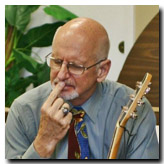 I almost didn’t go to church last Sunday. I didn’t feel at all well.
I almost didn’t go to church last Sunday. I didn’t feel at all well.
But—on auto-pilot—I shaved, showered, dressed, ate breakfast and by 8:30 a.m. found myself in my truck backing out of my garage. My truck knows full-well the way, so ten minutes later I slowly walked in the front door of our church . . .
Then Monday I read the blog below by Tim Challies—a simple, but profound reminder about why we shouldn’t “skip church.” (I was happy I hadn’t.) He called it “Why You May Be Tempted to Neglect Your Church”.
Here are two reasons you may be tempted to neglect meeting together with God’s people.
You Forget What You Bring. Hebrews 10:25 warns Christian against leaving local church fellowship, and the verse immediately prior gives the reason. As Christians, we all equally bear the responsibility to stir up one another to love and good works. We are to provoke one another to act in love and we are to provoke one another to promote good works. And the simple fact is that we cannot do these things if we are not together.
In the background of the book of Hebrews is the New Testament teaching that we, as Christians, are like a body—Christ’s body. In Romans 12 Paul says, “For as in one body we have many members, and the members do not all have he same function, so we, though many, are one body in Chris, and individually members one of another.” In some way God looks upon Christians just like we look up the many parts of one body–many parts, but one person. In some way God looks upon the local church as many parts but one body. Paul explains the same theme in 1 Corinthians and in both of these passages he draws the same application–that just as each part of the body as an important function, each Christian has an important gift. Just as each part of the body makes the body function well and as a whole, each Christian’s gift is meant to make the church function well and as a whole. There are no superfluous body parts, and there are not superfluous Christians.
When you are tempted to disassociate from the local church, whether permanently or semi-permanently or even for a lazy Sunday where you just can’t be bothered, you have forgotten what you bring to the people of your church. You have neglected to understand and believe that you—yes you!—are a crucial part of the body of Christ. You have a gift to bring, and the church is only complete when you bring it an use it.
God has made you part of the body, and the body needs you to function well. When you neglect to meet with God’s people, you deny them the gifts he has given you—gifts that bring him glory when you use them for the good of others.
You Forget What You Need. If it is true that God has gifted you to be a part of the whole, there is an important implication: God has gifted them as well. You are incomplete without your church. God has not so gifted you of all people that you can thrive and grow without the gifts he has given to others. You are part of the body, but only a small and singular part of it. Unless you can imagine your thumb striking off on its own and building a life for itself, or unless you can imagine your appendix seceding from the body and thriving, you shouldn’t imagine yourself leaving local church fellowship.
In this way neglecting to meet with God’s people is a sign of overwhelming and outrageous pride. You have somehow determined either that the gifts God has given others are of no real consequence to you, or you have determined that you are so gifted that you can happily survive without them. The reality, of course, is that God has made Christians to thrive and survive only in community. Lone Christians are dead Christians.
God has made you part of a body, and you need the rest of that body to function well. When you neglect to meet with God’s people, you deny yourself the gifts he has given them—gifts that bring him glory when they use them for your good.
In those times where it just seems hard to be part of a local church, and in those times where neglecting the church seems so attractive, you are forgetting what you bring and what you need. Of course you’ve also neglected to consider how badly you need the preaching of God’s Word and the celebration of the Lord’s Supper and the witnessing of baptisms and the other beautifully ordinary means of grace that God dispenses through his gathered church. But first you’ve forgotten that you are part of a body—a body that you need, and a body that needs you.
I was convicted—not because I hadn’t gone, but because I had seriously considered it, not thinking at all about what I bring and what I need. But suppose you (unlike me) don’t play on the worship team or teach Sunday school or have some other leadership role? Suppose you just greet a few people, sing to the Lord, pray when the pastor prays, listen to his sermon, give your tithes and offering and go home? Suppose you don’t even know what your gift is? Do you still bring something? Yes. You bring you. And you are the gift. You are a new creation in Christ Jesus. When you bring you, you bring a living, breathing miracle of God’s grace. When you sing, you encourage others to sing in praise. When you listen attentively to God’s Word, you encourage others to be good students of Scripture. When you pray (even silently), your prayers are joined with the others’ and rise to the throne of grace and make a difference.
Tomorrow is Sunday. Neglect church? Don’t even think about it!
 Today’s been rough for me. Not feeling well at all. Then I found an e-mail from my daughter, Meridith, who keeps me supplied with worshipful, heart-lifting music.
Today’s been rough for me. Not feeling well at all. Then I found an e-mail from my daughter, Meridith, who keeps me supplied with worshipful, heart-lifting music.





 I almost didn’t go to church last Sunday. I didn’t feel at all well.
I almost didn’t go to church last Sunday. I didn’t feel at all well. Last Sunday I heard our congregation sing!
Last Sunday I heard our congregation sing!
Recent Comments